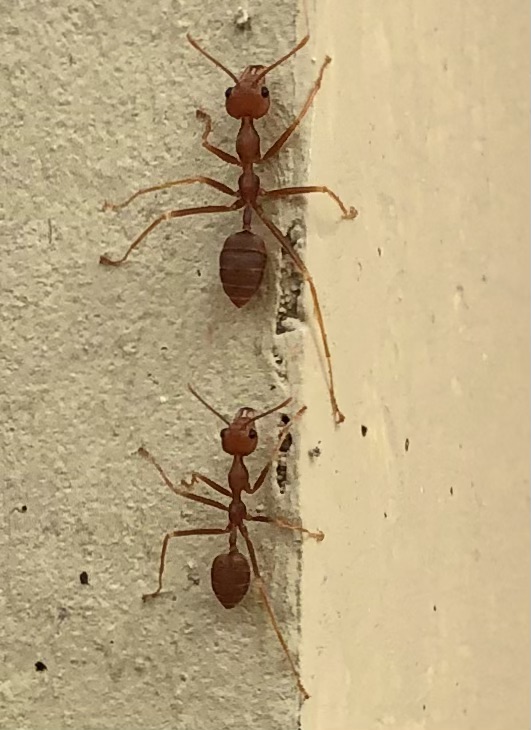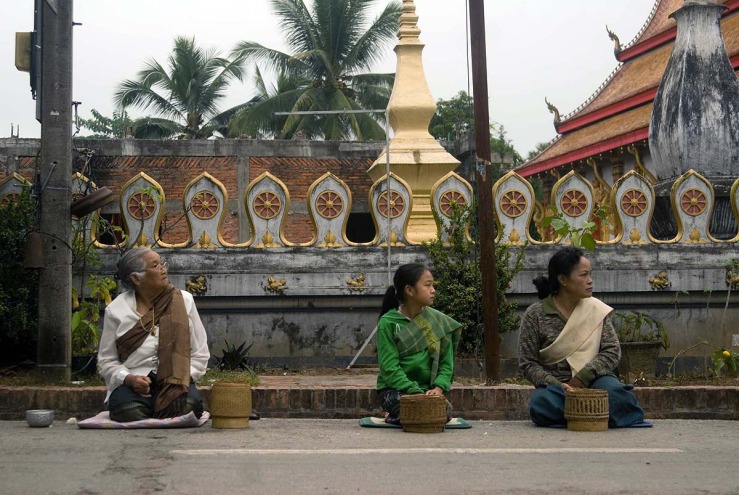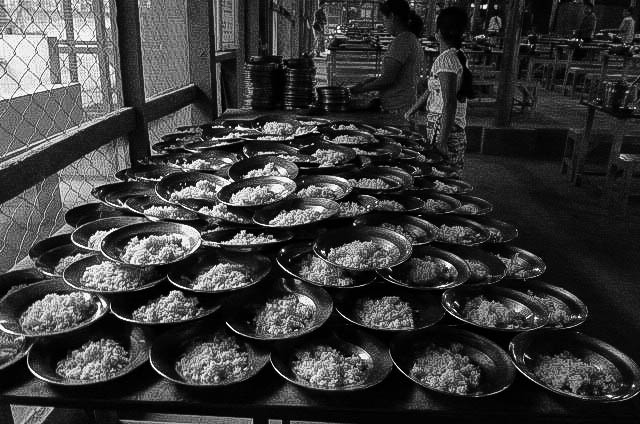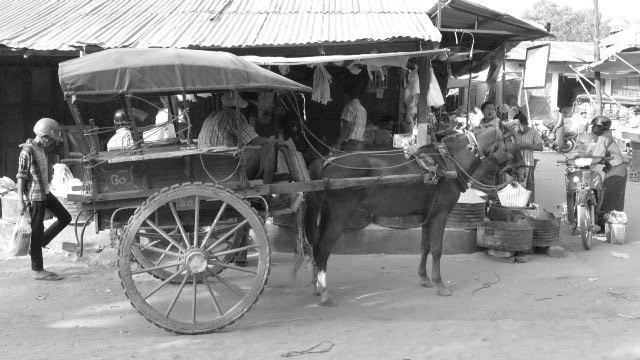To travel is very useful, it makes the imagination work, the rest is just delusion and pain. Our journey is entirely imaginary, which is its strength. - Celine
I facilitate English, the language of barbarians in Yangon, Myanmar.
Ah bliss. I salute the sun every morning from the 8th floor balcony with twinkling stars flocks of crows and silent burgundy monks clanging gongs.
Wing song.
Bamboo grows strong. Resilient.
Laundry dries faster than a speeding sparrow.
One small life chapter began in Phonsavan, Laos, a sleepy, dusty enclave near Vietnam.
The Plain of Jars wars and scars.
Survivors and archeologists say the jars were funeral containers holding bones of relatives. Jarring fact.
Truth is beyond a shadow of a reasonable healthy doubt they were drinking vessels of GIANTS.
I know. I was there 4,000 years ago.
This is what happened more or less.
A wealthy Lao landowner hired a Burmese management team to build a golf course near the airport.
Golf is good necessary and an important social, cultural and economic improvement in the quality of life when it involves business between two of the most impoverished Asian countries placing a ball on a T.
Factoid. Lao GDP per capita - $2593, Myanmar - $1347
Why drive when you can putt?
They had a meeting. What do we need, asked Mr. Lao? We need a lot of land - grass, trees, sand, water, - irrigation systems, electricity, roads, parking lots, air conditioning, a clubhouse, a driving range rover, range rover can I come over, said the Burmese developer.
We need umbrellas, clubs, balls, toilets, ATM machines, restaurants, capital expenditures for furniture and fixtures, food, napkins, plates, cutlery, lawnmowers and many servants. You build it, said the Lao man and wealthy Asians will come and go.
A ten-year old girl said Laos is divided in two parts. The Chinese own the north and Vietnam owns the south. So it goes.
At the corner he turned into Nham Nham market-street. The U shaped dirt lot market faced 1-D. Tuk-tuk drivers and small pickup trucks waited for passengers to Never-Never Land or distant H’mong villages.
Fifty or more H’mong women selling produce spread out inside the U before dawn. Community.

At 8:30 Mr. Important, an old man in a red coat walked around telling everyone to pack it up and move on. Carts, baskets loaded, wheeled trolleys disappeared. Women unable to rent interior market space stashed baskets of greens near the interior market. They’d set up on stone passageways at 4:30 p.m. for evening business.
The outside edges of the U are lined with shuttered shops.
At a pharmacy he conversed with a happy female doctor who works at the hospital and is pleased to introduce him to her 14-year old daughter who can speak English but is too busy now playing a game on her phone, see you later he said to the pharmacist ... passing wooden shops with sewing men and women, hair salons one in particular where a smiling Vietnamese woman cuts his hair and cleans his ears, rice threshing people working machines, tools and farming essentials before entering twisting narrow cement interior islands of fabric, dresses, shirts, pants, shoes and MSG packaged food stuffs as women converse, watch imported Thai videos and play with curious eyed kids.

The traditional market was covered with rusting PSP sheets and tattered umbrellas along the edge with excellent fruits and vegetables. Carnivores buy buffalo, chicken, beef, grilled bats and fish. Dirt and haphazard cement floor. Watch your step.
How slow can you go?
He never saw foreigners here.
He enjoyed the ambiance, peace and quiet, observing life, mimicking language and eating thick noodle soup with boiled liver slices swimming with ginger, ground red chilies, two boiled eggs. The kind woman gave him a platter of fresh lettuce. $1.25.
An old funny woman doing good business fries small cakes and coconut balls. Early on, after he discovered the noodle place he heard her say loud and clear, I don’t know and I don’t care.
He turned laughing. How and where did she hear and learn this? From my son. Otherwise her English was nonexistent. She badgered him to buy thick sweet milk coffee.
Women chop, cook, chatter in low tones, breastfeed infants, stoke cooking fires with kindling, fry snacks, sell fast food - meat, noodles, vegetables, and fruits to motorcycle helmet shoppers, moms, dads, school kids, shopkeepers from the interior and wandering lookers gossiping, exchanging lives.
H'mong women don’t buy here. They sell on the edge. They grow all the food they need.
Self-sufficient.
A Little BS
![A Little BS by [Timothy Leonard]](https://m.media-amazon.com/images/I/41Z3Il+J4PL.jpg)









 Share Article
Share Article 

![A Little BS by [Timothy Leonard]](https://m.media-amazon.com/images/I/41Z3Il+J4PL.jpg)


